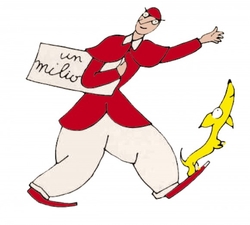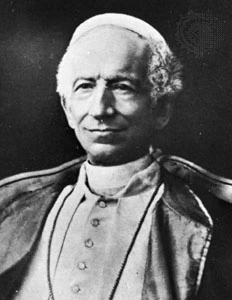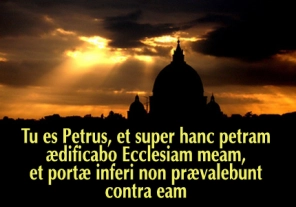Magisterium And Infallibility: A Take
The Magisterium is the teaching authority, or the teaching office, of the Church; the way we use to express the fact that the Church has the right to teach us what is the Truth. It comes from the Latin Magister, “teacher”.
The Magisterium is divided into two:
1. Infallible Magisterium, called Sacred Magisterium and
2. Fallible Magisterium, called Ordinary Magisterium.
The Infallible Magisterium is, in turn, divided as follows:
1.1. extraordinary declarations of the Pope, speaking ex cathedra. This is the typical subject coming out when there is any discussion about “infallibility”. An example is the declaration of the dogma of the Immaculate Conception.
1.2. extraordinary conciliar decrees. This is when not a Pope, but an ecumenical council declares what the entire Church holds as true. An example is the declaration of papal infallibility made by the First Vatican Council.
1.3. ordinary and universal Magisterium. This is what has always been held as true by the Church. Examples: male priesthood, ways of transmitting holy orders, doctrine of war, doctrine of capital punishment, and all the teachings that have been taught in the history of the Church as Christian truth.
2) The (fallible) Ordinary Magisterium is that part of the teaching which is not considered expression of what the Church has always held as true and can, therefore, be fallible. This is not easy to point out to and mainly pertains to all that teaching that is not directly related to 1. above; this kind of teaching is unavoidable in the work of every Pope, as no Pope can only open his mouth, not even in religious matter, to express what the Church has always held true. This is also what happens in the daily works of the bishops speaking individually or (when 1.2 does not recur of course) in groups: in all these cases, the Bishops endeavour to explain Catholic truths, but this doesn’t give to their teaching the character of infallibility.
Please do not confuse 2. with 1.3. The ordinary and universal Magisterium of point 1.3 is infallible, the ordinary Magisterium of point 2. is not. This is important as from what I read around, a lot of perfectly orthodox Catholics write “ordinary Magisterium” when what they mean to say is properly called “ordinary and universal Magisterium”.
1.1, 1.2 and 1.3 are, therefore, all expression of infallibility. Therefore, 1.3 (the ordinary and universal Magisterium) is infallible even when it does not find expression in any of 1.1 or 1.2.
Let us make a couple of examples of (infallible) ordinary and universal magisterium:
1.3.1 when the Church teaches that male priesthood is Catholic truth, she teaches this infallibly and there is no necessity to underpin this with an expression of extraordinary Magisterium, because the fact that male priesthood is a matter of ordinary and universal Magisterium makes it infallible anyway. This is very probably the only reason why Pope JP II did not state infallibly the (new) dogma of male priesthood: male priesthood is – albeit not defined verbatim, as is the case in a dogma – already an infallible teaching. For the sake of completeness, if the Pope had declared such a dogma this would have been an expression of his extraordinary magisterium and would have been an extraordinary declaration under 1.1 above.
1.3.2 when the Church teaches the nullity of Anglican so-called orders, she teaches this infallibly, because the ways of transmission of holy orders are matter or ordinary and universal Magisterium. This is the reason why Anglicanorum Coetibus requires the convert who desire to become Catholic Priests to be ordained instead of conditionally ordained (which the Church would do if there were doubts about the validity of their orders), or not ordained at all (which the Church would do if there was no doubt about their orders being valid). The nullity of Anglican so-called orders being infallibly taught, there is no space for doubts about what is to do.
Coming now to another subdivision, the teachings of the first Group (the ones that I have called 1. Sacred Magisterium, that is: the one that is infallible and that, once again for the sake of completeness, includes not only the extraordinary declarations of 1.1 and 1.2 but also the ordinary teaching of 1.3, the “ordinary and universal Magisterium”) must all be held infallible, but they are divided in two categories of teaching:
1.a.1 teachings de fide credenda
1.a.2 teachings de fide tenenda
1.a.1 is somewhat higher in the hierarchy: this is that part of the infallible teaching which is explicitly and specifically revealed in the deposit of faith: The First Vatican Council put it in this way: “Wherefore, by divine and Catholic faith all those things are to be believed which are contained in the word of God as found in Scripture and Tradition, and which are proposed by the Church as matters to be believed as divinely revealed, whether by her solemn judgment or in her ordinary and universal Magisterium.” (Dei Filius, Par. 8.)
Here, a direct link with Scripture and Tradition is given, as the teaching is directly therein “contained”.
1.a.2 is somewhat lower in the hierarchy, but still expression of infallibility: this is the sum of all those infallible truths which are (Wikipedia) “proposed not as being explicitly in the deposit of faith, but nevertheless implied by it or intrinsically connected to it logically or historically”.
Here, a strong logical or historical link to Scripture and Tradition is given, but this link cannot – often for mere factual and historical reasons – be a direct one. An example of this is – always citing Wikipedia – Pope Leo XIII’s declaration of Anglican orders as null and void with Apostolicae Curae. Wikipedia calls these “dogmatic facts”, making clear that whilst the circumstances which cause the declaration to arise were not mentioned in the Bible, the declaration is founded on universally held Truth and is therefore infallible. Another example is to be found in the canonisations, with the relevant declaration not being – for obvious, purely historical reasons – contained in the Scripture or the Tradition, but being infallible nevertheless.
Once again:
1) Not everything which the Pope – or the bishops, come to that – teaches is infallible;
2) Infallible is not only what the Pope proclaims ex cathedra in matter of faith and morals, or what ecumenical councils have infallibly declared: ordinary and universal Magisterium is also infallible.
3) both teachings de fide credenda and de fide tenenda are infallible, be they expression of ordinary or of extraordinary Magisterium.
I hope that this helps to clarify the extent of the Church’s infallibility and the way it works. I have used as basis for this short exposition the relevant wikipedia entry, which I have found both better organised and more concise than the information found on the “Catholic Encyclopedia”, or browsing around.
If any Catholic should have misgivings about this, it might be reassuring to them to know that the Vatican has a troop of skilled theologians taking care that all Wikipedia entries pertaining to Catholic doctrine properly reflect what the Catholic Church teaches on the matter; it is, therefore, not likely (though always possible) that such an important entry contains imprecisions – from the Catholic point of view – that have not yet been corrected, and you can judge for yourselves the probability that it may contain theological errors. Note, though, that this means neither that Wikipedia is infallible, nor that the Vatican can ban Wikipedia entries from non-Catholic contaminations (the above mentioned entry is, actually, a good example of that). Nevertheless, you will be easily able to discern what is the Catholic statement from what is the Protestant dissent.
Therefore, if any non-Catholic – and I am thinking here particularly of those masters of self-delusion, the so-called Anglo-Catholics – should be of the opinion that Church doctrine is not what the Church says it is, I kindly invite them to submit their own “truth” to Wikipedia instead of abandoning themselves to their childish, angering, and extremely time-consuming whining and quibbling on this blog, and good luck to them.
Mundabor
Posted on June 16, 2011, in Catholicism and tagged Apostolicae Curae, Catholic, Catholicism, Conservative Catholic, conservative catholicism, Dei Filius, First Vatican Council, Infallibility of the Church, Magisterium, Papal Infallibility. Bookmark the permalink. 2 Comments.





















Very informative. I had a good understanding of this before, but I still learned some things from your article. Thankyou for the detailed breakdown.
Thanks Irenaeus!
M